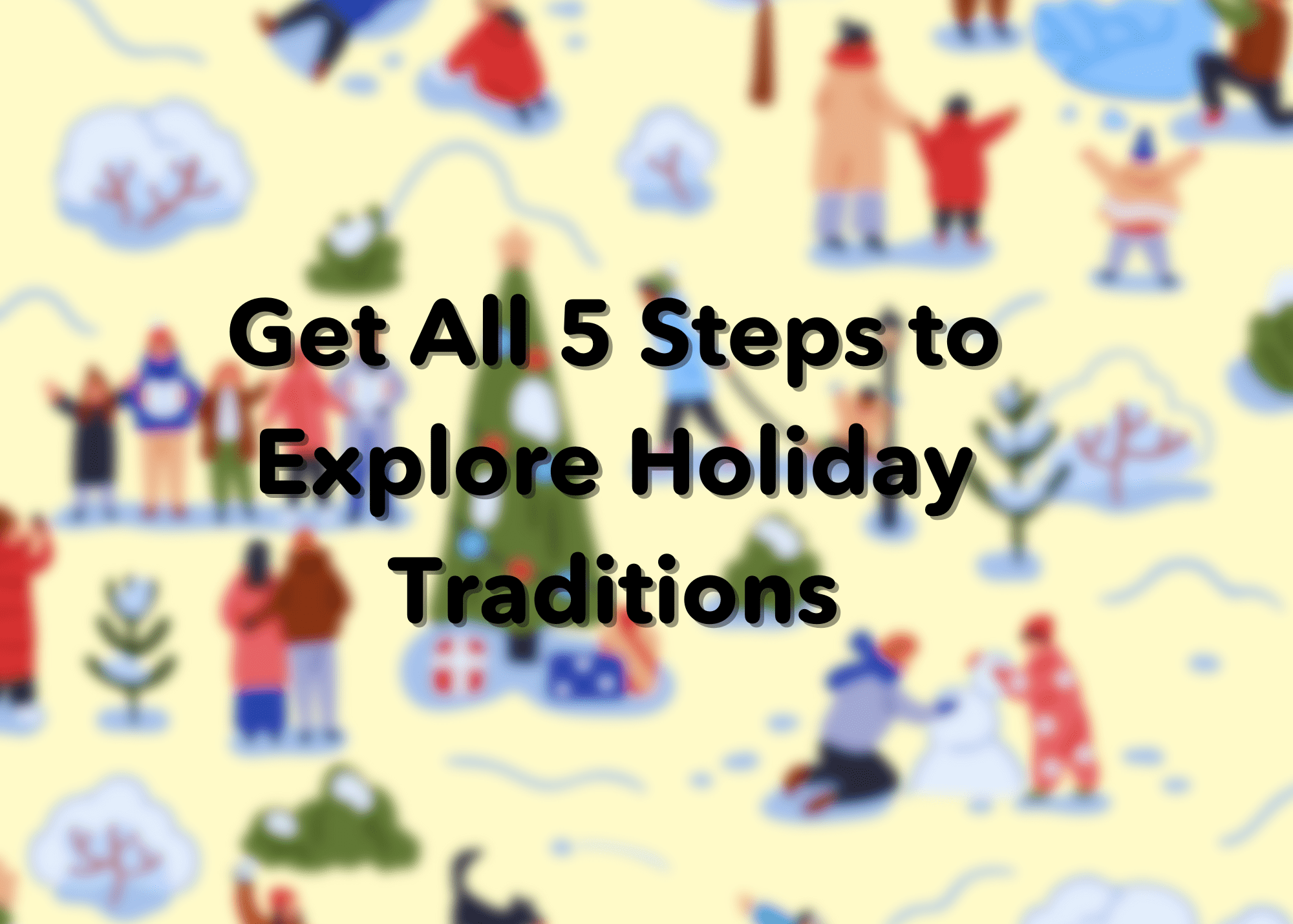
Start the Year Right with Reading
Clever Noodle TeamBuild Your Children’s Global Knowledge: Explore Holiday Traditions Around the World
I am always looking for clandestine ways to keep my son reading over the long winter break. One of our favorite activities is learning about other countries and cultures celebrations. While many of us have our own customs, the world is rich with diverse celebrations that reflect the unique cultures and histories of people everywhere. This year, why not take the opportunity to explore how different cultures celebrate the holidays with your children? It’s a fantastic way to foster understanding, appreciation, and curiosity about the world — and keep your children reading and researching.
Why Explore Different Cultures?
Understanding how various cultures celebrate the holidays can help children appreciate diversity and develop empathy towards others. It encourages them to think critically about their own traditions and the ways in which these practices influence their values and beliefs. This activity also helps children understand that their way of celebrating is not universal and shared by all - other families and cultures approach the same holidays differently. Bonus: You’ll keep your children reading, learning about geography, history, and social studies!
Steps to Explore Holiday Traditions
- Start with Research
Begin your exploration by researching different holiday traditions. Here are some engaging ways to gather information:
- Books: Visit your local library or bookstore to find books about various cultures and their holiday celebrations. Look for picture books or informative texts that are age-appropriate for your children.
- Online Resources: Websites like National Geographic Kids, BBC Bitesize, or cultural organization websites often have sections dedicated to holiday traditions around the world. These can provide a wealth of information in an engaging format.
- Documentaries and Videos: Platforms like YouTube, Netflix, or PBS offer documentaries and educational shows that explore different cultures and their holiday practices. Watching these together can spark discussions and questions.
- Choose Specific Cultures or Holidays to Explore
With so many cultures and traditions to choose from, it’s helpful to narrow your focus. Here are a few options to consider:
- Christmas Around the World: Explore how countries like Mexico (Las Posadas), Germany (Weihnachtsmarkt), and Ethiopia (Gena) celebrate Christmas with unique customs.
- Diwali: Learn about the Festival of Lights celebrated by millions around the world, particularly in India. Discuss the significance of lighting lamps and the story behind this colorful celebration.
- Hanukkah: Discover the traditions of Hanukkah, including the lighting of the menorah, playing dreidel, and the foods associated with this Jewish festival.
- Lunar New Year: Investigate the various ways different Asian cultures celebrate the Lunar New Year, such as the dragon dance, family reunions, and special foods.
- Kwanza: Study up on Kwanzaa, a cultural holiday that celebrates African heritage, unity, and community. It was created in 1966 as a response to the widespread social and political issues faced by African Americans during that time. The holiday takes place over seven days, from December 26 to January 1, and emphasizes the importance of family, community, and cultural values.
- Create a Book as a Holiday Gift
Use all this research to write a short book, sharing the different holidays and they are celebrated in other countries and cultures. This is a terrific gift for grandparents and other relatives. Type it up, copy it for multiple relatives, and draw some inviting book covers. This combines so many skills from developing creativity and art to practicing synthesizing and writing up the findings.
- Engage with the Community
Connecting with people from different cultures can provide firsthand insights into their holiday traditions. Here are some suggestions:
- Cultural Events: Look for local cultural festivals or events in your community where families celebrate their traditions. Attending these events can be a fun way for your children to experience different customs, foods, and music.
- Interviews: If you have friends or neighbors from different cultures, consider inviting them over for a meal or asking if they would be willing to share their holiday traditions with your family. Encourage your children to ask questions and learn more about the significance of their customs.
- Create a Holiday Tradition Project
To make the exploration more interactive, consider creating a project that showcases what your children have learned. Here are some ideas:
- Cultural Scrapbook: Have your children create a scrapbook where they can paste pictures, write descriptions, and include fun facts about each culture's holiday traditions.
- World Map: Use a world map to mark the countries you’ve researched. Add notes or decorations to represent the different holidays celebrated in each place.
- Cooking Together: Choose a few traditional holiday recipes from the cultures you’ve explored and cook them together. This hands-on activity will make the learning experience even more memorable.
- Reflect and Share
After your exploration, take some time to reflect. Ask your children what they found most interesting or surprising about the different cultures’ holiday celebrations. Discuss how these traditions compare to your own family’s practices and what they can learn from them.
Consider sharing your project with friends or family, or even hosting a small gathering where you can showcase your findings and serve the traditional dishes you prepared. This not only reinforces what your children have learned but also fosters a greater appreciation for cultural diversity within your community.
Exploring how different cultures celebrate the holidays is an enriching experience for children and families. It opens the door to understanding, respect, and appreciation for diversity in our world. By taking the time to research, engage with your community, and reflect on these traditions, you equip your children with knowledge and skills that will last a lifetime.
Happy exploring!




